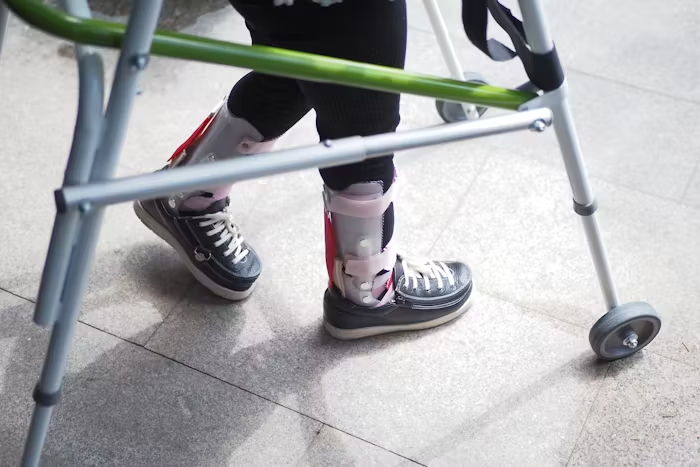Introduction: The Journey to Healing
Experiencing a breakup can be one of the most emotionally challenging periods in a person’s life. The end of a romantic relationship often leaves individuals feeling lost, hurt, or confused, which can make the journey to healing seem daunting. Understanding the importance of closure after a breakup is essential for personal growth and emotional wellbeing. Closure serves as a crucial step in the healing process, allowing individuals to process their feelings and move forward.
Unresolved emotions can linger long after a relationship has ended, creating a significant barrier to moving on. These residual feelings can manifest as sadness, anger, or even guilt, preventing individuals from finding peace within themselves and embracing the possibility of love after breakup. Addressing these feelings is vital to preventing stagnation in personal development. Without closure, one may find themselves trapped in a cycle of introspection and grief, which hinders the ability to experience life fully.
Moreover, the journey of healing encompasses more than just an emotional recovery; it also includes gaining a deeper understanding of oneself. Reflecting on the relationship, recognizing patterns, and acknowledging personal contributions can foster a sense of empowerment. This reflection aids in personal growth and prepares individuals for healthier future relationships. Achieving closure facilitates the acceptance of the past, allowing for learning and transformation rather than regret and pain.
In this blog post, we will explore effective strategies for finding closure after a breakup, examining the significance of this process in one’s healing journey. By acknowledging and addressing unresolved feelings, individuals can embark on a path towards emotional wellbeing and fulfillment, ultimately allowing them to embrace life’s new opportunities and relationships.
Understanding the Nature of Breakups
Breakups are complex emotional events that can significantly impact an individual’s mental and emotional well-being. When relationships end, various psychological dynamics come into play, which often manifest in common feelings such as sadness, anger, and confusion. Understanding these feelings is crucial for those seeking closure after a breakup. The initial response to a breakup typically involves a profound sense of loss, as individuals grapple with the end of a shared future they had envisioned. This can lead to a period of intense sadness where reminiscing about good memories competes with feelings of heartbreak.
In addition to sadness, anger can emerge during this tumultuous time. Individuals frequently direct this anger toward themselves, their ex-partner, or even the circumstances surrounding the breakup. It is essential to recognize that these emotions are natural responses that can contribute to the healing process. Rather than suppressing them, acknowledging and processing these feelings can facilitate moving on after a breakup, allowing individuals to learn more about themselves and their needs in relationships.
Confusion is another common emotional state experienced during this period. Many people find themselves questioning their worth and desirability, often leading to feelings of insecurity. This confusion can further complicate the pursuit of love after a breakup, making it difficult to envision a future without their former partner. Understanding these emotional fluctuations lays the groundwork for addressing the core issues that need resolving before achieving closure. Through introspection and acceptance, one can begin to navigate the path toward healing and regain a sense of balance. Ultimately, embracing this emotional journey is a critical step toward finding closure after a breakup and preparing for healthier relationships in the future.
The Importance of Acknowledging Your Emotions
Experiencing a breakup can lead to an array of emotions that often feel overwhelming. It is crucial to understand and acknowledge these emotions rather than suppress or ignore them. Emotions such as sadness, anger, confusion, and even relief are natural responses to the end of a relationship. Recognizing these feelings plays an essential role in achieving closure after a breakup, enabling individuals to process their circumstances and move forward.
One effective strategy for processing emotions is journaling. Maintaining a journal allows individuals to express their thoughts freely, providing a safe space for emotional exploration. Writing down feelings and experiences can aid in understanding the complexities involved in love after breakup, allowing for a reflection on personal growth. Additionally, journaling can serve as a record of progress, showing how emotions evolve over time.
Another beneficial approach is talking to friends or family members. Sharing experiences with trusted individuals can foster a sense of connection and support. Discussing feelings out loud often leads to breakthroughs in understanding and can validate emotions that may otherwise seem confusing or isolating. Those close to us can offer perspective, empathy, and sometimes even insights that facilitate emotional healing.
For some, the journey towards moving on after a breakup may feel too challenging to handle alone. Seeking therapy or counseling can provide professional guidance, helping to unpack complex emotions associated with loss. A therapist can offer coping strategies, support emotional validation, and assist in developing a personalized roadmap towards healing.
Incorporating these methods into the healing process emphasizes the importance of acknowledging sadness, which is a crucial step in attaining closure. Engaging with one’s feelings not only leads to personal insights, but also promotes emotional resilience, ultimately paving the way for healthier future relationships.
Creating a Closure Ritual
Finding closure after a breakup is a vital step toward emotional healing and moving on. Creating a personalized closure ritual can help individuals process their feelings and regain a sense of control. One effective approach is to write a letter to your ex-partner. Although you may never send this letter, the act of articulating your thoughts and emotions on paper can be cathartic. In the letter, express your feelings, reflect on the relationship, and acknowledge the positive and negative aspects of your shared experiences. This process serves as a means of honest self-reflection and emotional release.
Another powerful closure ritual involves holding a symbolic ceremony. This can be an intimate gathering with close friends or a solo activity in a serene location. Consider lighting a candle and speaking aloud your intentions for healing and moving on after the breakup. You might also wish to include symbolic elements, such as releasing balloons or writing your feelings on pieces of paper and burning them. This ceremonial approach transforms emotions into physical acts of closure, reinforcing your commitment to leaving the past behind.
Creating a ‘letting go’ list can further enhance your closure experience. Jot down everything you want to release, whether it’s negative emotions, regrets, or lingering attachments. Once your list is complete, find a way to symbolically let go of these burdens, such as tearing it up or burying it. Engaging in these rituals nurtures the healing process and ultimately facilitates moving on after breakup. Such actions not only honor your past but also signify readiness to embrace love after breakup, paving the way for new opportunities and relationships. By personalizing your closure experience, you create a meaningful transition toward healing and self-discovery.
Reframing the Relationship Experience
Breaking up can often leave individuals feeling lost or defeated, leading to a cycle of negative thoughts about themselves and their past relationships. However, reframing the breakup and the relationship itself can serve as a powerful tool for healing and self-growth. This process involves shifting one’s perspective to identify the lessons learned and the personal growth that may emerge from the experience. Rather than focusing solely on the pain of separation, individuals can begin to view their breakup as an opportunity for self-discovery.
Mindfulness practices play a crucial role in the reframing process. By engaging with one’s thoughts and emotions in the present moment, individuals can gain clarity and reduce feelings of overwhelm. Techniques such as meditation, journaling, or simply taking a moment to breathe can help create a mental space to reflect. During these reflections, it is essential to acknowledge the positive aspects of the relationship, recognizing what was meaningful and valuable, even if the partnership ultimately ended. This approach aids in understanding that love after breakup can be a journey rather than an endpoint.
Another helpful strategy is the use of positive affirmations. These affirmations serve as reminders of one’s self-worth and capabilities, fostering a mindset that promotes healing and empowerment. Phrases such as “I am deserving of love” or “This experience has made me stronger” can effectively replace negative thoughts triggered by memories from the past. By repeating positive affirmations, individuals can redirect their focus from the hurt of closure to the possibilities that lie ahead.
In conclusion, reframing the breakup and the relationship transforms how individuals process their experiences. By incorporating mindfulness and positive affirmations, one can cultivate a sense of empowerment, paving the way for moving on after breakup with renewed hope and resilience.
Building a Support System
During the emotionally challenging period following a breakup, building a strong support system is paramount. Surrounding oneself with supportive friends and family can make a significant difference in the journey towards healing and moving on after a breakup. These individuals provide not only a listening ear but also valuable perspectives that can aid in processing emotions and ultimately achieving closure after a breakup.
To cultivate a robust support network, start by reaching out to trusted friends and family members. Communicate openly about your feelings and the challenges you face; vulnerability can foster deeper connections and allow your loved ones to provide the necessary emotional support. It is essential to create an environment where you feel comfortable sharing your experiences without the fear of judgment. Consider engaging in regular catch-ups or phone calls to ensure that you maintain this communication over time.
In addition to friends and family, exploring support groups can be beneficial. These groups are specifically designed for individuals navigating the difficult path of healing after a breakup. They provide a safe space for sharing experiences, offering advice, and learning coping strategies from others who have faced similar situations. Online communities can also serve as valuable resources, particularly for those who prefer anonymity or reside in areas where in-person support groups may not be accessible. Participating in forums or social media groups focused on healing can facilitate connections and encourage individuals to share their journeys, which can promote feelings of solidarity and understanding.
Ultimately, building and nurturing a support system is integral to overcoming the emotional turmoil associated with breakups. By emphasizing connection and communal healing, one can foster an environment conducive to growth and love after breakup, helping to pave the way for a healthier future.
Setting New Goals and Moving Forward
A breakup often leaves individuals feeling lost and directionless. One effective way to initiate the healing process and achieve closure after a breakup is to set new personal goals that support self-improvement. By redirecting your focus towards activities that enrich your life, you can create a profound sense of purpose, laying the foundation for moving on after breakup.
Investing time in hobbies or pursuing new interests can significantly enhance your well-being. Engaging in activities that you are passionate about not only fosters joy and fulfillment but also aids in rediscovering your identity outside the prior relationship. Whether it is taking up painting, joining a sports team, or learning a new language, these activities can serve as a distraction from the emotional pain associated with the breakup while simultaneously contributing to your personal growth.
Additionally, self-care should be a priority in this transformative phase. It is essential to nurture your physical, emotional, and mental health in order to foster love after breakup. Incorporating a balanced diet, regular exercise, and sufficient rest into your daily routine can enhance your overall mood and resilience. Meditation and mindfulness practices can also help in processing feelings related to the breakup, allowing for a more peaceful mindset as you begin to move forward.
As you transition through this difficult period, it can be beneficial to systematically outline your goals, both short-term and long-term. Setting milestones, no matter how small, can provide you with a sense of accomplishment and motivate you further along your path. As you achieve these goals, you will find the strength to embrace new possibilities and experiences, ultimately leading to closure and a brighter future.
Embracing the Experience: Lessons Learned
Experiencing a breakup can often feel overwhelming and disheartening, but it also provides a powerful opportunity for reflection and personal growth. Embracing the lessons learned from a relationship can be key to achieving closure after a breakup. Engaging in introspection enables individuals to identify recurring patterns in their behavior and relationships, which can lead to greater self-awareness.
One effective method of reflection is journaling. Writing about your experiences during the relationship and the breakup can help clarify your thoughts and emotions. It acts as a conduit for processing feelings such as sadness, anger, or confusion, and can illuminate the lessons you’ve gained. Ask yourself questions like, “What did I appreciate about my partner?” and “What were the red flags I ignored?” This examination can assist in understanding your desires and boundaries in future relationships. It is essential to acknowledge that every relationship teaches us something valuable, and recognizing these lessons is fundamental for moving on after a breakup.
Moreover, identifying the characteristics you seek in potential partners can enhance your future romantic endeavors. This newfound clarity can empower you to cultivate healthier connections and find love after breakup, ultimately enriching your future relationships. Additionally, reflecting on the breakup can reveal personal areas for growth, ensuring that you’re not just moving on for the sake of it, but rather evolving as an individual.
In essence, embracing the experience and understanding the lessons learned can foster resilience and a sense of closure after breakup. This journey allows you to approach future relationships with a renewed perspective, ensuring that they are fulfilling and aligned with what you truly seek.
When to Seek Professional Help
Experiencing a breakup can be a deeply emotional and challenging time. While many individuals can navigate the process of moving on after a breakup with support from friends and family, there are instances when the emotional turmoil becomes overwhelming. Recognizing the signs that professional help may be necessary is crucial for achieving closure after a breakup.
One significant indication that professional intervention might be needed is the presence of persistent sadness or depression. If feelings of hopelessness linger for an extended period, or if individuals find it difficult to engage in daily activities, this may signal the need for therapy. Similarly, if thoughts of self-harm or suicidal ideation emerge, seeking immediate assistance from a mental health professional is essential. These feelings can stem from unresolved emotions related to the breakup, highlighting the importance of receiving support to regain emotional stability.
Another indicator that seeking help is advisable includes the inability to cope with everyday responsibilities. Breakups can shift emotional landscapes, causing individuals to become overwhelmed by fatigue, anxiety, or irritability. If these symptoms interfere with work, social life, or overall well-being, it may be time to consult a professional who specializes in issues related to love after breakup and emotional healing.
Therapy can offer a safe space to process feelings and develop healthy coping strategies. Mental health professionals can help individuals understand their emotions better, recognize patterns in relationships, and facilitate the healing process. Numerous resources, such as online directories and local mental health organizations, can assist individuals in finding qualified professionals in their area. Seeking support is not a sign of weakness but rather a proactive step towards achieving closure and ultimately fostering personal growth.









